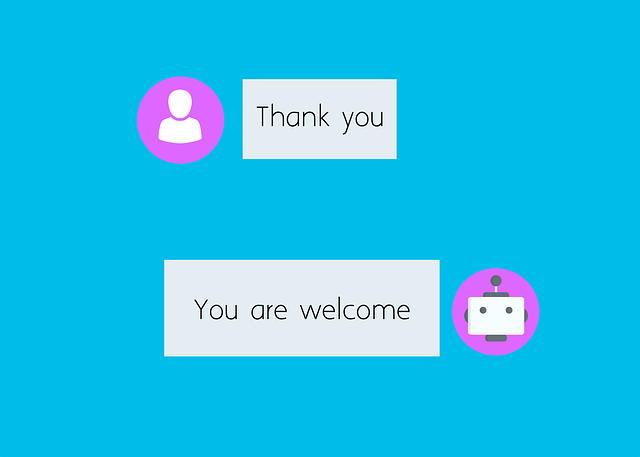Ecommerce chatbots are transforming customer interactions by offering instant support, personalized recommendations, and guidance through product searches, handling high-volume inquiries simultaneously. They collect valuable data, analyze shopping patterns, and facilitate targeted promotions, improving marketing strategies and sales conversion rates. Implementing these AI tools involves strategic placement, seamless integration across platforms, pre-programmed responses for common queries, and a smooth handoff process to human agents. Best practices include using natural language, leveraging machine learning, providing clear CTAs, updating knowledge bases regularly, and monitoring performance metrics to optimize effectiveness aligned with ecommerce goals. The future of AI-driven customer engagement features advanced ecommerce chatbots that leverage NLP for more human-like interactions, enhancing satisfaction and loyalty through 24/7 support and personalized advice.
“Discover the transformative power of AI chatbots in the bustling world of ecommerce. This article delves into the multifaceted role these virtual assistants play, from enhancing customer service to boosting sales. We explore their key benefits, such as 24/7 availability and personalized interactions, that revolutionize how businesses engage with their customers. Learn effective strategies for implementing an ecommerce chatbot, leveraging best practices to maximize return on investment. Additionally, gain insights into the future of AI-powered customer engagement, including emerging trends shaping the landscape.”
- Understanding Ecommerce Chatbots: Their Role and Benefits
- Implementing an Ecommerce Chatbot: Strategies and Best Practices
- The Future of AI-Powered Customer Engagement: Trends to Watch
Understanding Ecommerce Chatbots: Their Role and Benefits

Ecommerce chatbots are transforming the way businesses interact with their customers, offering a range of benefits that enhance both customer experience and operational efficiency. These AI-powered tools act as virtual assistants, providing instant support and personalized recommendations to shoppers. By understanding user queries and preferences, ecommerce chatbots can guide customers through product searches, answer frequently asked questions, and even facilitate purchases, thereby increasing sales conversion rates.
The role of an ecommerce chatbot extends beyond basic customer service. They collect valuable customer data, analyze shopping patterns, and offer targeted promotions, contributing to improved marketing strategies. Moreover, these chatbots can handle high volumes of inquiries simultaneously, freeing up human agents to focus on more complex issues. This not only reduces response times but also ensures every customer interaction is efficient and satisfying.
Implementing an Ecommerce Chatbot: Strategies and Best Practices

Implementing an ecommerce chatbot can significantly enhance customer experience and drive sales. The key is to strategize its placement thoughtfully, ensuring it addresses common queries effectively. Integrate the chatbot seamlessly across platforms, from website live chat to messaging apps like WhatsApp or Facebook Messenger. Anticipate and pre-program responses for frequently asked questions about product availability, pricing, shipping, and returns. However, also design a smooth handoff process to human agents when conversations escalate or become more complex.
Best practices include keeping conversational language natural and concise, leveraging machine learning to personalize interactions based on user history, and providing clear CTAs (Call-to-Actions) within the chat window. Regularly update chatbot knowledge bases with new product launches, promotions, and policy changes. Monitor performance metrics such as response time, customer satisfaction ratings, and conversion rates to continually optimize the chatbot’s effectiveness and ensure it aligns with ecommerce goals.
The Future of AI-Powered Customer Engagement: Trends to Watch

The future of AI-driven customer engagement is poised for a significant shift, with ecommerce chatbots taking center stage. As technology advances, these virtual assistants are becoming increasingly sophisticated, capable of handling complex queries and providing personalized experiences to shoppers. The trend towards more human-like interactions, powered by natural language processing (NLP), promises to enhance customer satisfaction and loyalty.
Ecommerce platforms are leveraging AI chatbots to offer 24/7 support, instant product recommendations, and tailored advice, thereby revolutionizing the way businesses interact with their customers. With advancements in machine learning, these chatbots can learn from each interaction, continuously improving their performance and ensuring a seamless shopping journey. This personalized approach not only boosts sales but also fosters stronger connections between brands and their audience.
AI chatbots are transforming the way businesses engage with their customers in the competitive ecommerce landscape. By understanding their role and benefits, implementing best practices, and staying abreast of emerging trends, retailers can leverage these powerful tools to enhance customer experiences, drive sales, and foster lasting relationships. Ecommerce chatbots offer a game-changing approach to customer service, promising a bright future for AI-powered engagement.
